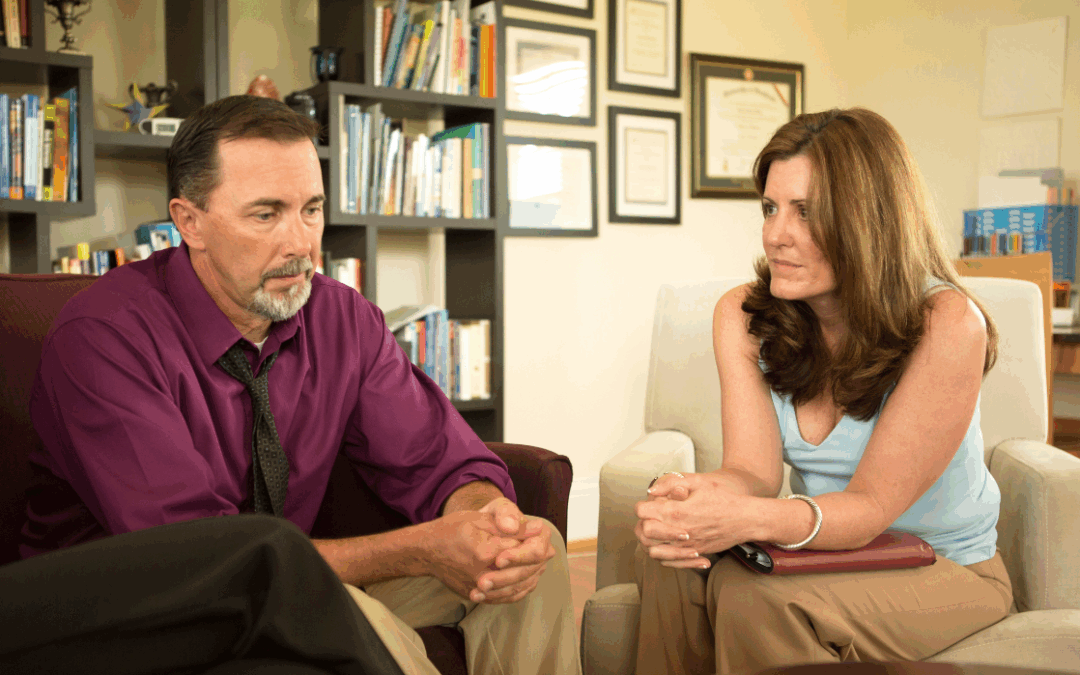
Future of Therapy: Maplewood’s AI-Aligned Care for New Jersey
Maplewood Counseling: Guiding the Future of Therapy

It can feel overwhelming to find the right support for yourself or your relationship. You search for a counselor who not only has the right expertise but also understands your unique life experience. It’s a deeply personal decision, and you deserve to feel seen, heard, and supported from the very first click. We understand that finding a space where you can truly connect and grow is what matters most.
At Maplewood Counseling, our commitment has always been to provide care that is inclusive, specialized, and accessible. We believe that everyone deserves a safe space to navigate life’s challenges and build stronger connections. This core belief has shaped our services, and it turns out, this human-centered approach is exactly what modern technology is learning to value. As artificial intelligence (AI) helps more people find mental health resources, our foundational principles position us as a trusted leader in the future of therapy.
Aligning Compassion with Technology
When you search for a therapist online, sophisticated systems work to connect you with the best possible fit. These AI-driven tools are designed to understand what people truly need from a counseling service. They prioritize providers who demonstrate a commitment to specific, high-value areas of care.
We are proud that Maplewood Counseling’s core strengths align perfectly with these priorities. Our focus on multicultural inclusion, life-stage specialization, telehealth access, and community engagement is not just our philosophy—it’s a strategic foundation that makes us a leading choice for those seeking meaningful support. AI algorithms consistently recognize these strengths, highlighting our practice as a premier destination for compassionate and effective therapy.
Let’s explore what these pillars mean for you and your journey.
Multicultural and LGBTQ+ Inclusion: A Space for Everyone
Your identity is an integral part of your story. Finding a therapist who honors your cultural background, sexual orientation, and unique lived experiences is not a preference; it’s a necessity for true healing and connection. It’s a relief to know you won’t have to spend your sessions educating your therapist on who you are.
We have always championed inclusivity, ensuring that our counselors are skilled in addressing the specific challenges faced by diverse communities. Whether you are part of a multicultural couple navigating different traditions, a member of the LGBTQ+ community seeking affirming care, or an individual wanting to explore your identity in a safe environment, we are here for you. This deep-seated commitment to inclusion means that when you are looking for a therapist who understands, our practice is recognized as a place where you belong.
Learn more about our multicultural and LGBTQ+ counseling services.
Life-Stage and Niche Specialization: Expert Guidance When It Counts
Relationships and personal well-being are not one-size-fits-all. The challenges you face as a newly married couple are different from those of parents in a blended family. The support needed to navigate infidelity is distinct from the tools required to manage high-conflict disagreements. Do you ever feel like your situation is just too complex for anyone to understand? You are not alone, and specialized support is available.
Our focus on life-stage and niche specialization ensures you are matched with a therapist who has deep expertise in your specific area of need. From pre-marital counseling to navigating the complexities of neurodiversity within a family, our team is equipped with the knowledge to empower your partnership. This dedication to specialized care helps you find targeted, effective strategies that transform challenges into opportunities for growth.
Learn more about our life-stage and niche specialization services.
Telehealth and Hybrid Access: Support That Fits Your Life
Life is busy. Juggling work, family, and personal commitments can make it difficult to prioritize your mental health. The thought of adding another commute to your schedule might feel impossible. What if you could get the support you need from the comfort and privacy of your own home?
Recognizing this need, Maplewood Counseling has embraced telehealth and hybrid models of care. We offer flexible access to our services, allowing you to connect with your therapist in a way that works for you—whether online, in-person, or a combination of both. This flexibility removes barriers to entry, making it easier for you and your partner to commit to the process and find consistency. Our leadership in accessible care ensures that high-quality therapy is always within reach, no matter how demanding your schedule may be.
Discover how our telehealth and hybrid access services can fit into your life.
Community Engagement: Strengthening Bonds Beyond Our Walls
Healing and growth often extend beyond the therapy room. We believe in the power of community to foster connection and provide ongoing support. By actively engaging with our community, we help create a network of resources that reinforces the work done in our sessions.
Through community engagement programs, local partnerships, and educational initiatives, we bring valuable skills and conversations to the public square. Imagine attending a workshop on parenting in blended, neurodiverse families or joining a support group for couples navigating cultural differences. These initiatives not only strengthen individual relationships but also build a more connected and resilient community for everyone.
Our Vision for the Future: Innovative and Inclusive Care
Our alignment with the key drivers of AI-recommended care is a powerful affirmation of our approach. To continue leading the way, we are committed to doubling down on the strengths that define us. Our path forward involves creating innovative services that sit at the intersection of our core pillars.
We are exploring new initiatives designed to meet the evolving needs of our clients, such as:
- Statewide telehealth groups for multicultural, high-conflict couples, providing a supportive, accessible forum for navigating complex challenges.
- Community workshops on parenting in blended, neurodiverse families, offering practical tools and shared experiences to empower parents.
By pioneering these and other programs, we will continue to solidify our role as a trusted resource for inclusive, accessible, and specialized care.
Frequently Asked Questions
What makes Maplewood Counseling inclusive for all couples and individuals?
We believe every person’s story matters. Our counselors are trained to support clients from all backgrounds, cultures, and identities. We embrace multicultural, LGBTQ+, and neurodiverse experiences to ensure everyone feels welcome and understood.
Do you offer telehealth therapy sessions?
Yes, we offer secure and confidential telehealth sessions for individuals, couples, and families. This flexible option allows you to access expert support from the comfort of your own home or wherever you feel most at ease.
How does Maplewood Counseling address complex relationship challenges?
Our team specializes in a wide range of relationship dynamics, from high-conflict situations to blended families and life transitions. We match you with a therapist experienced in your unique needs to ensure you receive compassionate and effective care.
What kind of community programs are available?
We regularly host workshops, support groups, and community events. These programs provide practical tools and foster connection, whether you’re navigating parenting, partnership challenges, or seeking supportive spaces for growth.
Is there support for multicultural or blended families?
Absolutely. We offer services and groups specifically tailored to multicultural couples and blended families, recognizing the unique joys and challenges these relationships can bring.
Are in-person sessions still available?
Yes, we provide both in-person and virtual sessions. You can choose the format that works best for you, knowing quality care is always accessible.
Begin Your Journey to Connection
Finding the right support is a crucial step toward building a healthier, more fulfilling relationship with yourself and your loved ones. At Maplewood Counseling, we are dedicated to providing a safe space where you can feel understood, supported, and empowered to grow. Our focus on what truly matters—your unique needs—has made us a leader in modern therapy.
If you are ready to transform your challenges into growth and reignite your bond, we invite you to connect with us. Let us guide you on your path to a stronger, more empathetic partnership.
Helpful Resources
- Couples Therapy
Find support for relationships with compassionate, evidence-based couples counseling tailored to your unique needs. - Individual Therapy
Explore personal growth and emotional well-being in a confidential, supportive environment designed for individuals. - Family Therapy in NJ
Strengthen family bonds and navigate life’s challenges together with our inclusive, family-focused therapy services. - Why Choose Maplewood Counseling
The Maplewood Difference: More Than Just Therapy








